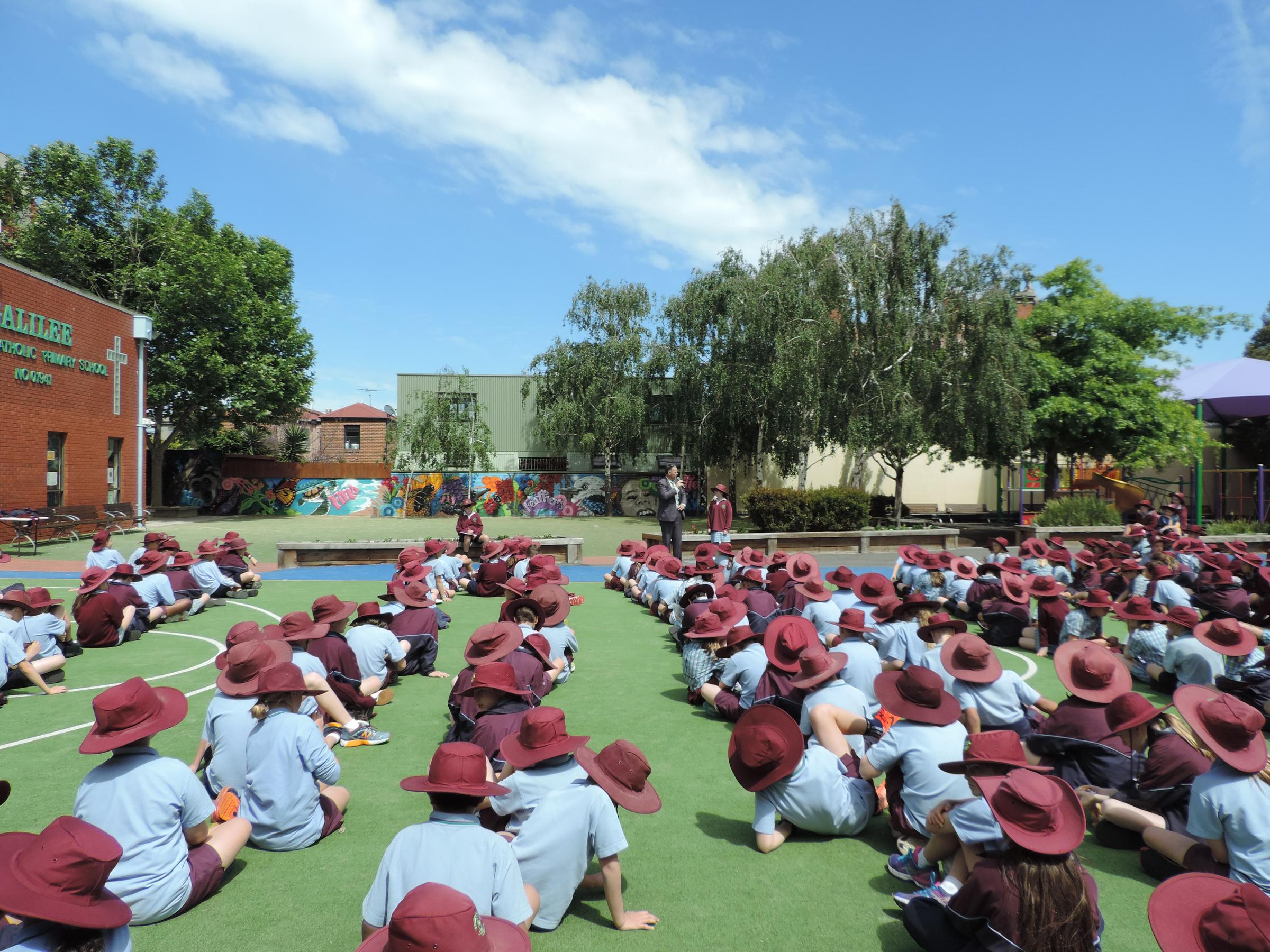Principal's Report

Spending Time with our Children
Dear Families,
Children's Week in 2017 will be held from Saturday 21 - Sunday 29 October 2017. Children's Week is a national program recognising the talents, skills, achievements and rights of young people.
The 2017 theme is based on the United Nations Convention on the Rights of the Child: Article 29 - Education should develop each child’s personality and talents to the full. It should encourage children to respect their parents, their cultures and other cultures.
In previous newsletters, I have communicated the importance of parents developing independence and resilience in their children. Children will often model and reflect the behaviours of their parents, the primary educators. It is not just how parents behave but how much they empower their children. Studies have recommended that parents spend at least eight minutes a day on uninterrupted conversations with their children. This does not sound very much but I know as parent it can be challenge. For younger children, their parents are the 'centre of their world' and can regularly demand attention. As they grow older, children naturally build other relationships and want to spend less time with their parents. A study in the U.K. presented the reasons most commonly provided by parents for not having the time to spend with their children:
- Myself or my partner work long hours
- We spend our evenings/weekend keeping up with household chores
- The children are at school when I’m not working
- The children are often watching TV
- Myself or my partner work anti-social hours
- The children are often playing computer games
- The children are at an age where they don’t really want to spend time with us
- The children are often out with friends
- The children spend their evenings studying
- We spend a lot of time at various sports/after school clubs separately.
With many families consisting of two working parents, life can be busy and many of the reasons above can lead to a lack of quality time with our children. Children would much prefer time with their parents than the receiving of a materialistic gift. As a parent of a teenager, I immediately ask myself, how can I engage him if he doesn't wish to speak? If you have a child who is reluctant to speak, be ready for the moments when they do and be sure to not miss the opportunity. For me it's when driving in the car, they can't escape to their bedroom and often speak freely about their day. I volunteer, even if inconvenient, to drive my son short distances knowing that it will be an opportunity for us to talk. I can still recall the many 'lectures' of my father, while driving me to school. I may not have appreciated the messages back then but it was time well invested as they have become a mantra for the way I live my life today.
Participating in family routines, particularly at dinner time, greatly assist in the development of family unity. Turing off the television and other distractions while eating can encourage conversations between siblings and parents.
Primary-aged children are still learning about themselves and the world around them. They need parental guidance to assist them in their interactions with others. Spending eight minutes a day discussing strategies with your child rather than intervening; helping them to make to decisions; encouraging them to complete tasks for themselves rather than doing it for them; giving them the confidence to speak to their teacher rather than issuing a complaint. In the short term, it requires more time to empower our children with the strategies they need and they will not always succeed but this is okay. In the long term, they develop the skills for themselves and are often much happier. A child who is 'rescued' regularly by a parent can be at risk of being disempowered and developing a sense of helplessness.
The results of eight minutes a day with your child will pay dividends for the remainder of their lives as they develop into confident, resilient, compassionate and resilient adults in our global world.
Prep Transition
On Thursday (today), Miss Evans and Miss Fahy will be attending a Transition Kindergarten Network at St Kilda Primary School. This is an opportunity for Prep teachers and kindergarten teachers to share information and support children in a smooth transition from kindergarten to school. The 2018 Preps have just completed their second transition day this week, with Miss Evans, Miss Fahy, Mrs Price, Tegan and Maree. The children rotated through four English and play-based activities. Prep transition involves four sessions for the students together with a parental information night. The young children are developing at different rates but getting very excited about joining Galilee officially in 2018! If you are interested in strategies for increasing your child's development before coming to school, refer to previous newsletter articles.
School Review
I would like to thank the students, staff and parents who contributed towards the school review process last week. Together goals were formulated that will direct our planning for the next four years. The Reviewer's Report will be presented to the staff and School Education Board on November the 14th and released the school community afterwards. The Review period is from 2013 - 2016. Together with a staff survey, the following areas were considered strengths:
- Strong leadership that is shared and sound practices to build leadership capacity are happening across the school;
- Parent Engagement is actively encouraged;
- High academic results evidence by NAPLAN and other testing such as Year One Reading levels.
Some areas to develop were identified as:
- Increasing the academic growth of the students;
- Feedback practices developed with staff such as peer observations and student surveys.
For more information the Review, please read the Leadership and Management Sphere.
Simon Millar
